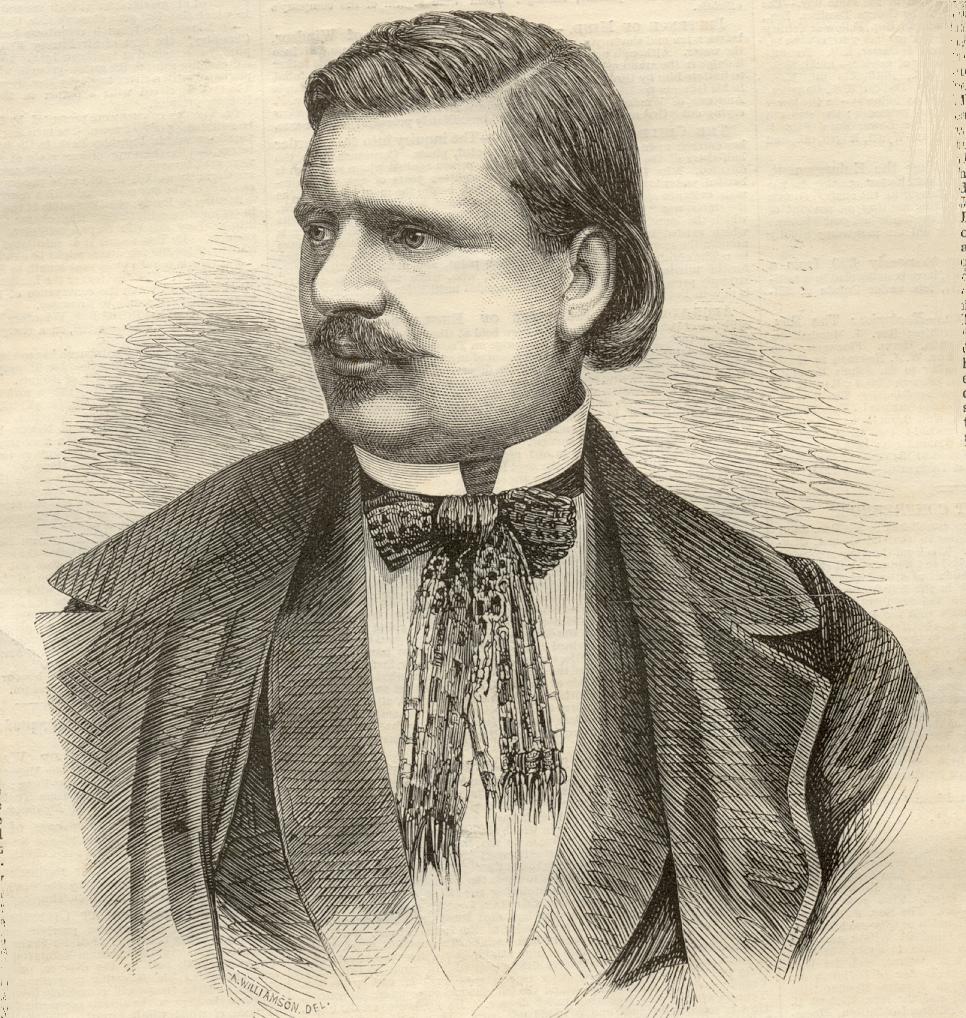Antonio Giuglini
17 January 1825 Fano – 12 October 1865 Pesaro
Il tenore Giuglini al Teatro Italiano di Parigi
Let us come to the hero of the evening, Giuglini. On this occasion, the souvenirs of Mario and Tamberlick came up; here Mario was more
dramatic, there Tamberlick gave his famous do; this one sang from the chest, this one sang from the throat. Finally Giuglini received an
immense success. He is a stylish singer; he phrases with exquisite taste, he exaggerates nothing; and in the dramatic moments, he knows
how to bring the public to frenzy. After his first act aria off stage, the audience had judged him. From that time on, Giuglini had
conquered all sympathies. After the andante of the third act, he received a tremendous ovation. He had to repeat the aria. He was no
less remarkable in the cabaletta that he sang with great fervor and warmth. The audience was waiting for the Miserere. Here again the
audience marveled. He was barely finished singing that shouts of bis started. The second time, he was no less marvelous; nobody sings
with more tenderness and suavity. At the end, he was called by name and he reappeared with his partners. Paris has confirmed the
reputation of the celebrated tenor. Giuglini must be proud of the results as the public of the Italien is difficult and does not give
their favor easily. Il trovatore was given five times; each time it was a triumph for the new tenor. Next I puritani, a work that is said
to be one of the favorite roles of Giuglini. We do not think that he will sing more works as he was engaged for only twelve evenings.
Il Pirata, 24 December 1859
|
|
Antonio Giuglini is dead. He died on Thursday the 12th at 10:00 AM sadly at the mental hospital of Pesaro. Il Trovatore, 20 October 1865
|
From childhood, Giuglini was destined to become a priest. He sang in the cathedral choir in Fermo, and attracted attention. He
resisted many offers to sing professionally, but eventually was lured into a stage debut, still in Fermo, in 1850.
Then he sang in small Italian theaters, but only for a short while. In 1852, he was already in Rome for the
first time (Teatro Argentina), in 1853 in Bologna and Naples (Teatro San Carlo), in 1855 at La Scala, where he
was very successful as Manrico, Nemorino and Raoul, and in 1856 in Genova.
His voice was, as per Charles Santley, less than powerful and slightly throaty, but his phrasing perfect, and the ornaments
that he added of impeccable taste and style. As an actor, though, he "was ungraceful and lacked intelligence", wrote Santley.
Giuglini was also quite successful as a composer. As a person, he was spoiled, capricious, and somewhat foolish.
In 1857, Giuglini made his London debut as Fernand; London was to become the center of his career. He worked
there with both leading impresarios of the period, Benjamin Lumley and James H. Mapleson, appeared at Her Majesty's,
at the Lyceum and at Drury Lane, and triumphed as Riccardo, Arrigo, Rodolfo (in Luisa Miller), Faust or
Vincent (until 1864). He also sang in Trieste in 1858, at the Paris Théâtre-Italien in 1859/60, and returned to
La Scala in 1860 as Elvino (his most famous part).
During a guest season in St. Petersburg (1864/65), his mental health deteriorated rapidly; back in London, he was brought to a
mental asylum by Mapleson. Later the same year, Giuglini traveled back to Italy, where he died in another asylum before long.
Reference 1; reference 2: Kutsch &
Riemens
|
